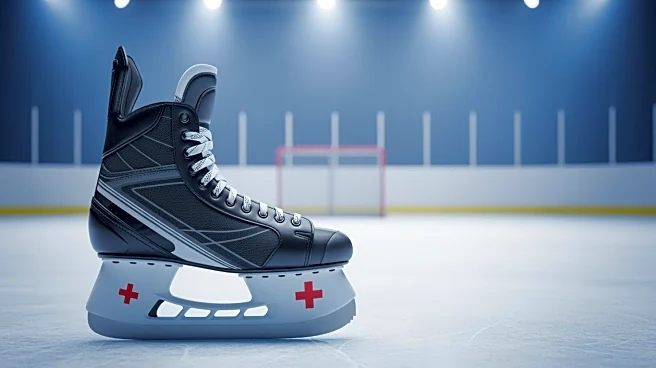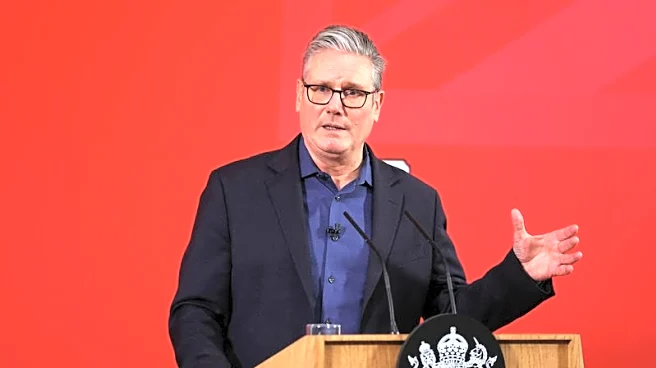What's Happening?
Filip Hallander, a rookie forward for the Pittsburgh Penguins, has been placed on injured reserve due to a blood clot in his leg. The team announced that Hallander will miss at least three months as he undergoes
rehabilitation with the Penguins' medical team and UPMC staff. Hallander, who is 25 years old, was diagnosed with the condition shortly after playing in a game against the Toronto Maple Leafs. Penguins head coach Dan Muse expressed gratitude for the quick diagnosis by the medical staff, emphasizing the importance of Hallander's health over his hockey career. Hallander has been a significant player for the Penguins, having played on the top forward line alongside Sidney Crosby and Bryan Rust in several games. He was originally selected by the Penguins in the second round of the 2018 NHL Draft and has returned to the team after playing in the Swedish Hockey League.
Why It's Important?
Hallander's absence is a significant loss for the Pittsburgh Penguins, as he has been an integral part of their forward lineup. His condition highlights the importance of health and safety in professional sports, where athletes are often at risk for various medical issues. The Penguins will need to adjust their strategy and lineup in his absence, potentially affecting their performance in upcoming games, including the NHL Global Series in Stockholm, Sweden. This situation underscores the critical role of medical teams in sports organizations, ensuring athletes receive timely and effective care. Hallander's recovery will be closely monitored, and his return will be anticipated by both the team and fans.
What's Next?
The Penguins will continue their season without Hallander, requiring adjustments to their lineup and strategy. They are scheduled to play two games in Stockholm against the Nashville Predators as part of the NHL Global Series. The team will rely on other players to fill the gap left by Hallander, and his progress will be monitored by the medical staff. Hallander's rehabilitation process will be crucial in determining his return to the ice, and the Penguins will support him throughout his recovery. The situation may prompt discussions on player health and safety protocols within the league.
Beyond the Headlines
Hallander's diagnosis and subsequent absence from the team may lead to broader discussions about the health risks faced by athletes and the importance of early detection and treatment of medical conditions. The Penguins' handling of the situation could serve as a model for other teams in managing player health issues. Additionally, Hallander's personal journey, including his return to Pittsburgh after playing in Sweden, adds a layer of complexity to his career and highlights the challenges athletes face in balancing professional commitments with personal life.










